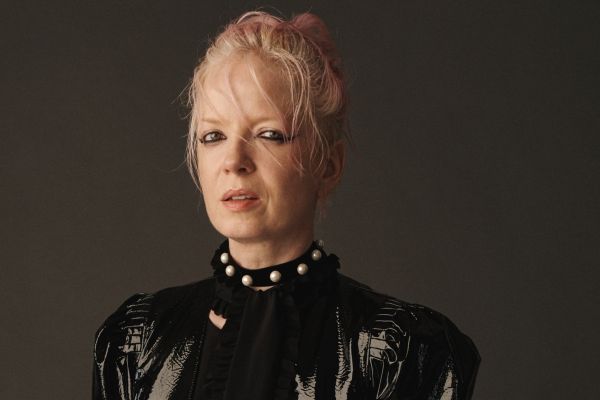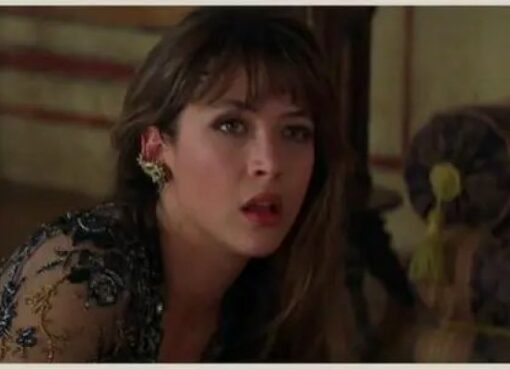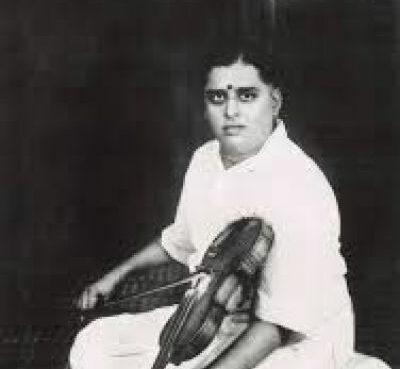Garbage remains one of rock’s most alluring and savage proposals nearly 30 years after Shirley Manson vowed to “rip your tiny world apart.”
The band first appeared in 1995, changing the sound of pop music with a blend of rock riffs, glitching electronics, and seductive dance beats.
Critics, however, regarded them with mistrust because they were a studio project created by Nirvana producer Butch Vig, who hired Manson despite a “disastrous” audition in which she was “practically mute” due to anxiety.
Shirley Manson claims, “We were criticized for not being a real band. “People still consider us a “producer’s band” nowadays. No matter what we’ve done, everyone is giving us the cold shoulder.”
Even when they pioneered the use of samplers and loops in live performances, it was brushed off as fake. The singer claims, “We were laughed at, but now everyone is doing it.
“People went crazy because we were the first band to surround the drum equipment with sonic shields. You might have believed we murdered their grandmother. Since all vocalists like a clear, pure signal, everyone is now doing it as well.”
The band managed to survive despite (or perhaps because of) their underdog position, and No Gods, No Masters, their powerful, political record from the previous year, was praised as “one of their best” and “terrifyingly thrilling.”
Shirley Manson claims, “We’ve managed to establish a career by not listening to people. We “have a nasty attitude,” inverted commas, but that attitude has helped us carve out a niche for ourselves.”
The band has released a wild, career-spanning Anthology CD to mark their third decade. We asked Shirley Manson for the tales behind Garbage’s best songs in the spirit of her podcast The Jump, in which she speaks with musicians like Patti Smith and Alanis Morissette about writing their biggest successes.
Vow (1995)
Page Contents
“To be completely honest, I didn’t write most of those lyrics. The line “You burned me out but I’m back at your door / Like Joan of Arc coming back for more” from the song “Vow,” which was more or less finished when I arrived for my audition, was one of my favorites.
This is Patti Smith-level material, I thought. I was into it, and I still am, because she is one of my all-time touchstones, and I believe Patti’s impact can be heard on every single record we’ve made.
“Butch was quite anxious about Vow. It wasn’t good enough in his opinion. He had more to lose than we did, to be fair. Butch was a pretty well-known producer, whereas I had been in a few independent bands that nobody cared about.
“Fortunately for us, Vow was the only song that was even remotely near to completion when Volume magazine, which at the time was a very trendy CD magazine, came to us while we were producing the debut album and said, “We’d like to put out a Garbage track.” We took off after Vow was aired on the radio due to that magazine.”
Terrible Girl (1996)
“Thought to be our most popular song, it’s far from it. I merely believe that Stupid Girl was the catalyst for everyone’s adoration of us.
“It has a strong pop sound, a distinctive production, and of course, the fantastic Clash sample. Then Samuel Bayer made us a great video (inspired by David Fincher’s Se7en’s opening credits), and that’s how many people recall first encountering us. Additionally, I thought I looked amazing in that video if I do say so myself. People were intrigued by the band since it had a cool appearance.
“Who is the stupid girl, then? There was a target, but a lady never mentions that!”
I believe I am paranoid (1998)
A song about the music business and the anxiety of releasing a follow-up to a successful album. Manson claims that 24 years later, the lyrics are still relevant.
“The music business has remained unchanged. Actually, no. not its guiding concepts. It’s a business model built on exploiting starving artists, and I believe that as an artist, you would be wise to accept these limitations because they never change.
“The industry takes advantage of the necessity for mechanisms by which creative people may reach the population. They are incredibly wealthy and neglectful to artists, who are typically the last to receive payment.
“We were fortunate in that we were able to establish careers before streaming. Alternative musicians who don’t create music to appeal to the general public are currently drowning every single day.”
The World is Not Enough (1999)
“The movie’s composer, David Arnold, requested to meet me in a coffee shop in London. He and Bjork had recorded the gorgeous song “Play Dead,” and I was honored that he would even be interested in getting to know me. Then he asked over coffee, “Do you want to sing the next Bond theme?”
“Of course, I went crazy and agreed right away.”
Androgyny (2001)
“I love that we’re all talking about non-binary sexuality and gender now even though we had no concept that we were tapping into a phrase that would gain mainstream usage. That makes me happy. I believe we must begin to discipline ourselves to think about [gender] in a new, nuanced, and knowledgeable way.
“It has nothing to do with sexual or human attraction. It’s about being authentic and content with life. And it is just beyond my comprehension why some individuals feel the need to stamp on other people’s necks due to some bizarre Victorian thinking.”
Also Read: Simon Sinek Motivating Speech On Wife, Relationship





